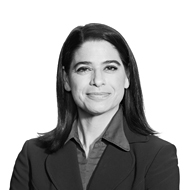Dementia Care: Protecting a Father's Legacy

At first, Theresa Von Vreckin chalked up her father’s odd behavior to fatigue. Her dad, Theodore Fisher, had been the primary caregiver for her mother, Mary, who was ill for more than a decade. When Mary went to a nursing home, Fisher visited his wife every day for two years until she passed away in 2012.
“I thought he was just exhausted. But after my mother died, I began to notice more things,” says Theresa, a business analyst who lives with her husband and two children near her dad in the suburbs of Buffalo.
When Theresa's son graduated from high school, Fisher was uncharacteristically subdued. One night after a dinner out, Fisher—who'd lived in Buffalo 50 years—got lost driving home. In fall 2013, when he began to hallucinate that other people were living in his home, Von Vreckin took her dad to a neurologist.
Theodore was diagnosed with Lewy Body dementia, the most common form of dementia after Alzheimer's (and the same disease from which the comedian Robin Williams suffered at the time of his death). "My dad was a chemical engineer, a very intelligent man," says Theresa. "Now there are times when I am not sure he knows who I am."
Theodore, 77, is in a nursing home that costs $13,000 a month—now covered by his long-term-care insurance policy and pension income. Theresa, 50, is in charge of managing her father's $1.5 million investment portfolio and wants to fulfill his wish to leave money to his family. But she feels overwhelmed by the task, since his assets are spread out over more than a dozen accounts.
Advice for Theresa
- Consolidate accounts. To make managing Theodore's portfolio easier, Theresa should combine the $640,000 he has in four IRAs into one account, says San Antonio certified financial planner Ben Gurwitz. She should consolidate his taxable accounts as well.
- Stick with stocks. The portfolio is heavily invested in stocks, but Gurwitz doesn't recommend selling to reduce the risk—even though benefits from the long-term-care policy will expire in three years. Between Theodore's pension and Social Security, his income is nearly $7,000 a month. "I'm not concerned about him running out of money," Gurwitz says. Selling long-held stocks in the taxable accounts would trigger a big tax bill now, but after Theodore's death, that capital-gains liability will be erased for heirs.
Von Vreckin says putting her dad in a nursing home was the hardest decision of her life but she knows it was the right one. "My dad always went out of his way to help others. I think he would be very happy that we're sharing his story if it helps other families too," says Von Vreckin.
